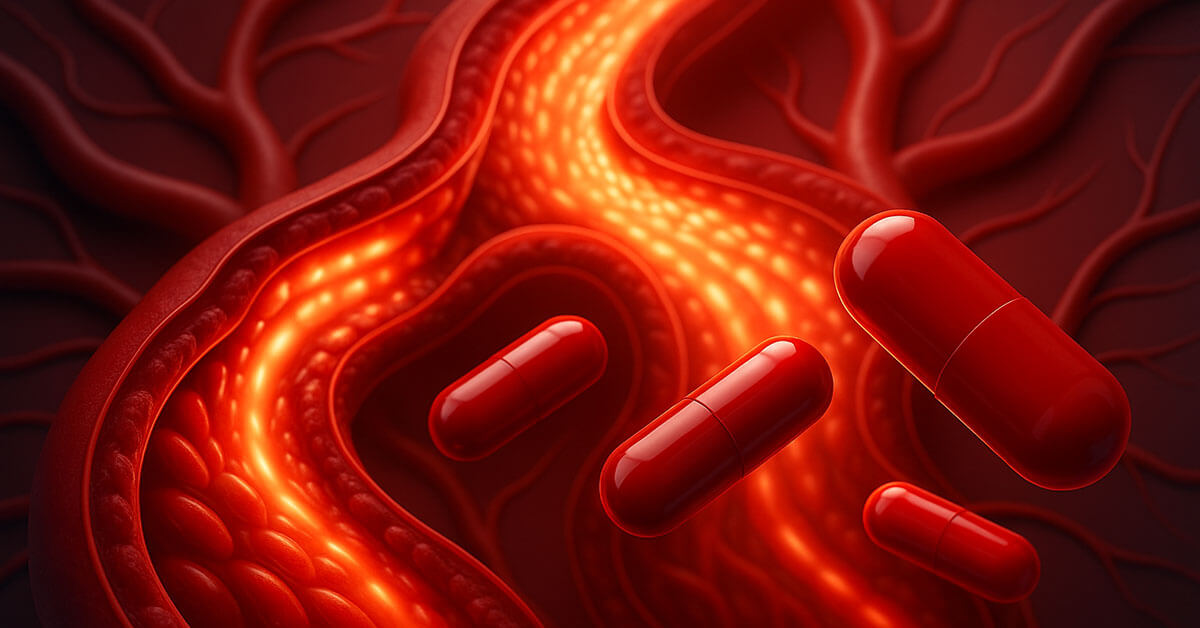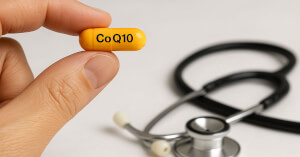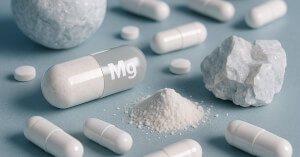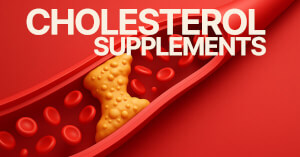
Can You Unclog Arteries Naturally? The Truth About Nattokinase and Serrapeptase

Heart disease remains the #1 killer worldwide and clogged arteries are a big part of that story. If you've been told you have plaque buildup, high blood pressure, or poor circulation, you might be wondering: Is there a natural way to clean out my arteries? Two enzymes are often mentioned in this context: Nattokinase and Serrapeptase.
In this article, we’re going to look at the science, the hype, and the real potential of these enzymes, and what you should know before trying them.
Why Arteries Get Clogged in the First Place
Arteries don’t get blocked overnight. The process, called atherosclerosis, is slow, silent, and driven by multiple factors:
- Oxidized cholesterol buildup
- Chronic inflammation
- Excess fibrin (a clotting protein)
- High blood sugar and insulin resistance
Over time, plaque forms on artery walls, narrowing the vessels and reducing blood flow. This can lead to chest pain, high blood pressure, heart attacks, strokes... you get the picture.
So, can supplements like Nattokinase and Serrapeptase really help clean things up? Let’s see.
The Idea Behind “Unclogging” Arteries Naturally
Let’s be clear: your arteries aren’t kitchen pipes. You can’t just “flush out” plaque with a pill. But you can support your body’s ability to break down certain harmful proteins (like fibrin), reduce inflammation, and improve circulation. That’s where enzymes come in.
Both Nattokinase and Serrapeptase are known for their fibrinolytic activity, meaning they help break down fibrin, the sticky substance involved in blood clots and plaque structure.
What Is Nattokinase and How Might It Help?
Origin
Nattokinase is extracted from a traditional Japanese food called natto, fermented soybeans. And let us tell you: in Japan, natto is everywhere. It’s loved for its health benefits, especially cardiovascular support, and it's a staple of breakfast tables across the country. You’ll find it in school cafeterias, train station bento boxes, and grandma’s fridge. Its taste and slimy texture are… let’s say, acquired , but the Japanese swear by it.
How It Works
Nattokinase is an enzyme that helps dissolve fibrin, improve blood flow, and reduce clotting risk. It may also slightly lower blood pressure and improve circulation by reducing blood viscosity, making it thinner and easier to pump.
What the Research Says
Several small studies show that nattokinase may reduce blood clotting factors, lower blood pressure, and help clear arterial plaque. In one study, it reduced carotid artery thickness, a key marker of atherosclerosis. While more research is needed, the early results are promising.
When to Take It
On an empty stomach, ideally in the morning, for best absorption and systemic effects.
Dosage
100–200 mg per day, standardized to 2,000 fibrinolytic units (FU)
What Is Serrapeptase and What Does It Do?
Origin
Serrapeptase (also called serratiopeptidase) is an enzyme originally derived from the gut of silkworms. Yes, actual worms. It’s what they use to dissolve their silk cocoons when transforming into moths. Today, it’s produced through fermentation for supplement use.
How It Works
Serrapeptase breaks down non-living tissue, including dead cells, scar tissue, excess mucus, and, importantly, fibrin. It also has anti-inflammatory effects and is sometimes used for sinus congestion, joint pain, and post-surgical swelling.
Evidence and Clinical Use
Some studies suggest that serrapeptase may reduce arterial plaque formation by lowering inflammation and degrading fibrin in blood vessels. It's widely used in Asia and parts of Europe as a natural anti-inflammatory and circulatory aid. However, large-scale human trials are still limited.
When to Take It
Take on an empty stomach (at least 30 minutes before food), ideally in the morning or between meals.
Dosage
20,000 to 60,000 SU (serrapeptidase units) per day. Start low and increase gradually.
Can These Enzymes Really Remove Arterial Plaque?
Let’s manage expectations: these enzymes won’t magically “melt away” years of cholesterol buildup. But they may help reduce the fibrin and inflammation that contribute to the growth and hardening of plaque. They might also support smoother blood flow and reduce clotting risk, both critical for heart health.
Think of them as supportive tools, not miracle cures. Their biggest potential? Prevention and long-term maintenance.
Safety and Precautions
- Don’t mix with blood thinners (like aspirin or warfarin) without doctor supervision
- Avoid if you have bleeding disorders or upcoming surgery
- Not recommended during pregnancy or for children
- Always consult your healthcare provider before starting
These enzymes affect clotting and blood viscosity, which is their whole point, but that also means caution is key.
Complementary Natural Strategies for Artery Health
Want the best results? Combine these enzymes with smart lifestyle changes:
- Eat more leafy greens, berries, garlic, and omega-3-rich foods
- Exercise regularly (even walking helps keep blood flowing)
- Reduce sugar and ultra-processed foods
- Quit smoking (seriously, it wrecks arteries)
- Consider other heart-healthy supplements like CoQ10, Omega-3, and Vitamin K2
Final Thoughts: Should You Try Nattokinase and Serrapeptase?
If you’re serious about supporting your cardiovascular health naturally, especially as you age, Nattokinase and Serrapeptase are worth exploring. They won’t replace medication if you’re at high risk, but they may be valuable allies in your long-term heart health strategy.
As always: do your research, talk to your doctor, and don’t rely on any one supplement to do all the work. Combine them with a heart-healthy lifestyle, and you’re giving your arteries a much better future.
Stay curious. Stay proactive. And take care of your heart, it’s doing more work than you think.
This article was originally published on Stackbb, your trusted source for science-based supplement guides.






